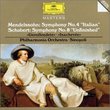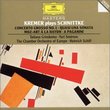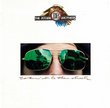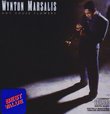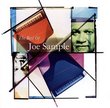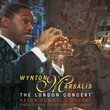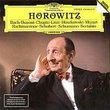| All Artists: Gustav Mahler, Claudio Abbado, Chicago Symphony Orchestra Title: Mahler: Symphony No. 7 Members Wishing: 0 Total Copies: 0 Label: Deutsche Grammophon Release Date: 3/14/1995 Genre: Classical Style: Symphonies Number of Discs: 1 SwapaCD Credits: 1 UPCs: 028944551327, 0028944551327 |
Search - Gustav Mahler, Claudio Abbado, Chicago Symphony Orchestra :: Mahler: Symphony No. 7
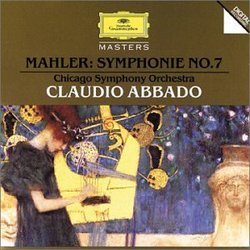 | Gustav Mahler, Claudio Abbado, Chicago Symphony Orchestra Mahler: Symphony No. 7 Genre: Classical
No Description Available No Track Information Available Media Type: CD Artist: MAHLER,G. Title: SYM 7 Street Release Date: 03/14/1995 |
Larger Image |
CD DetailsSynopsis
Product Description No Description Available No Track Information Available Media Type: CD Artist: MAHLER,G. Title: SYM 7 Street Release Date: 03/14/1995 Similar CDsSimilarly Requested CDs
|
CD ReviewsNo longer the troubled symphony Andrew Iwasyszyn | England | 02/02/2000 (5 out of 5 stars) "This has always been the most difficult of Mahler's symphonies to perform. It is a work that through its long outer movements, requires great skill and understanding from the conductor, in order to give a complete reading. The central movements are imaginative, dark and searching, but many a performance has brought out the qualities of these central three movements and then fallen apart in the rondo finale. This is the first recording to succeed in both. The, now famous, second movement is timed to perfection, Abbado bringing everything out in the haunting undertones and yet the finale is just as successful and for the first time, you want to go back and hear it again, it is so convincing. The sound quality is second to none and the playing is particularly fine (just listen to the brass passages in the first movement!). Deryk Cooke found this work problematic, as keen as he was about Mahler, but I think this recording sets any troubled minds at rest." Abbado+CSO+Mahler 7=winning combo cmk | Oregon | 03/21/2001 (5 out of 5 stars) "First off, I really don't see why anyone has ever had a problem with this symphony. It makes perfect sense to me. I have always thought that the 5th symphony's movement structure is much stranger and illogical then the 7th's. Anyway...... If you have a problem with this symphony, I can say, confidently, that you won't anymore after you hear this recording. Abbado leads the CSO on possibly the best recording of the work available. Definately the best modern recording. The first movement has all the power you could want in the powerful parts, and all the beauty you could want in the beautiful parts. (For some reason, upon hearing the first movement, it has always sounded like the depiction of the preperation of a battle and then the battle itself. I don't know. Just a thought.) Abbado's upbeat tempo in the Scherzo makes it sound almost diabolical. The 2 Nachtmusik movements are just gushing with Romantic expression. I like to call these movements good "stress releavers", as they are some of Mahler most gorgeous pieces. Peaceful, mysterious and beautiful are the 3 words that always come to mind when listening to the Nachtmusik movements. The opening trumpet call on the first one is mesmorizing. The Rondo-Finale is full of energy and excitement, with mind boggling virtuosity, especially from the dynamite brass ensemble. In conclusion, Abbado and the CSO deliver all the goods. Sound quality is excellent. And the price is definately right. An absolute steal." Two Mahler Sevenths from Abbado Santa Fe Listener | Santa Fe, NM USA | 01/08/2006 (5 out of 5 stars) "Twenty years separate Abbado's CSO recording of the Mahler Seventh (1984) from his live concert reading with the Berlin Phil. (2002). This symphony brings out the best in Abbado; there isn't a trace of slackness or underplaying in either performance. It's interesting to compare how his conception has changed over two decades.
1984: When the CSO played under Solti, every Mahler symphony was turned into a blockbuster, externalizing the music so that you noticed the orchestra first and Mahler second. This is sitll somewhat true here. The CSO is extroverted and forward, prone to big gestures in the air and aided by one of DG's best early digital recordings--one could mistake this for top-of-the-line analog sound. Abbado conducts in broad strokes, and in his effort to make the music beatuiful at every moment, he doesn't sharply delineate changes of mood and tone. The entire first movement, for example, doesnt' get tangled with itself or veer between schizoid moods as under Bernstein. We hear a steady march rhythm throughout and consistent optimism. Similarly, the finale is smoothed out to the point of sounding jaunty. That said, Abbado shows a strong affinity for this work; every section is ocmpletely felt and convincing. At the time of its release, when critics still parroted the rusty judgment that the Seventh is a "difficult" work, Abbado offered mellifluous proof that it wasn't. 2002: The Berlin Phil. doesn't showcase itself, serving Mahler with spontaneous, expressive playing of his every nuance. In fact, the refinement of ensemble is all but uncanny. Abbado hasn't changed his earlier timing (78 min.) by more than a few seconds, but the controus are different--this is a performance of many contrasts, sharp turns, eerie ghost noises, idealized memories of nature, and surreal dancers who disappear into the night. The recorded sound is more distant than before, enticing the listener in rather than meeting us face to face. Both are great performances, and if the supernatural precision of the Berlin Phil. hadn't appeared, the CSO's execution would seem like the last word. In the end one could own either version alone, but they are just different enough that experiencing both brings new pleausres." |

 Track Listings (21) - Disc #1
Track Listings (21) - Disc #1